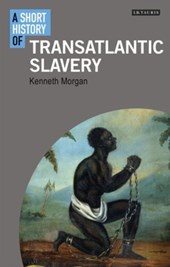

ebook
{{model.bookDetails.expectedAvailabilityDate}}
A Short History of Transatlantic Slavery ebook
{{'Reeks: ' + model.bookDetails.series}}
{{'Reeks: ' + model.bookDetails.series + '(' + model.bookDetails.seriesNumber + ')'}}
Let op, dit is een ebook in EPUB 3 formaat
Let op, dit is een e-book! Please note: this is an ebook.
Let op! Van dit boek is maar 1 tweedehands exemplaar beschikbaar!
Verwacht {{model.bookDetails.expectedAvailabilityDate}}
Vanaf
€{{model.bookDetails.refPriceMaxText}}
€{{model.bookDetails.ramsjCopiesPriceText}}
€{{model.bookDetails.ramsjCopiesPriceText}}
€{{model.bookDetails.newCopiesPriceText}}
€{{model.bookDetails.fromPriceText}}
(Tweedehands vanaf € {{model.bookDetails.usedCopiesMinimumPriceText}})
(Tweedehands vanaf € {{model.bookDetails.usedCopiesMinimumPriceText}})
Niet leverbaar
Of haal dit boek op bij een van onderstaande boekhandels. Je betaalt dan geen verzendkosten én spaart het milieu.
{{shop.location}}
Deze titel is (nog) niet op voorraad.
Meer op Athenaeum.nl over boeken
- Dagelijks een nieuwe recensie of leesfragment
- Regelmatig vertalers over hun werk
- Podcasts van interviews in de winkel
- Literair nieuws
- De agenda
Goede redenen om dit boek bij ons te kopen
- Boekhandels in Amsterdam en Haarlem
- Bij afhalen geen verzendkosten én je spaart het milieu
- We bezorgen in heel Nederland
- We berekenen slechts een fractie van de werkelijke verzendkosten door. Je helpt ons door meer boeken tegelijk te kopen.
- Bestellen kan zonder registratie of login



